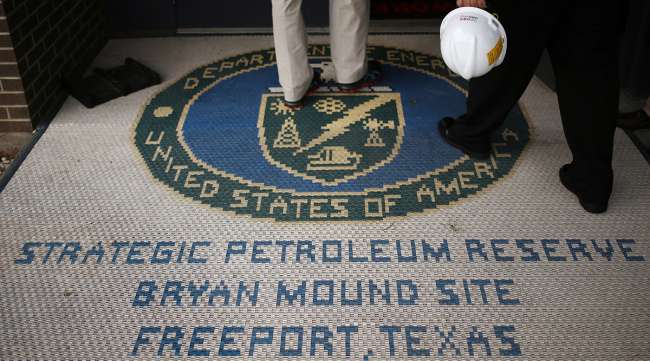US Poised to Release Oil From Reserve With Other Nations

[Stay on top of transportation news: Get TTNews in your inbox.]
President Joe Biden is preparing to announce a release of oil from the nation’s Strategic Petroleum Reserve in concert with several other countries as soon as Nov. 23, according to people familiar with the plan.
The move, likely in conjunction with India, Japan and South Korea, would be an unprecedented effort by major oil consumers to tame prices after OPEC+ countries rebuffed U.S. calls to significantly boost production. China said it is working to release oil from its strategic reserves, days after the U.S. invited it to participate in a joint sale.
The situation remains in flux and the plans could change, but the U.S. is considering a release of more than 35 million barrels over time, according to two of the people. The pending announcement was described by people who requested anonymity prior to official statements.

For Veterans Day, host and Navy veteran Michael Freeze sits down with Army veterans James Rogers, owner of Spartan Direct Trucking Co. and 2020 Transport Topics Trucking's Frontline Hero, and John Baxter, equipment columnist. Hear a snippet above, and get the full program by going to RoadSigns.TTNews.com.
The move would pit the countries against the OPEC+ coalition — led by Saudi Arabia and Russia — for control over world oil markets and could prompt OPEC and its allies to re-evaluate plans for reviving oil supplies.
International Energy Forum Secretary-General Joseph McMonigle said in a statement Nov. 22 that OPEC+ may change its plan for raising oil output if consuming nations sell petroleum reserves or the coronavirus pandemic worsens.
“Such a move would potentially raise the stakes in the oil poker game and could produce new strains in the bilateral relationship between Washington and Riyadh,” said Helima Croft, chief commodities strategist at RBC Capital Markets LLC.
Representatives of the U.S. Energy Department didn’t respond to a request for comment. White House Press Secretary Jen Psaki said the U.S. has been in contact with other countries but declined to say how the administration plans to proceed.
“We have been having conversations with a range of countries about the importance of making sure that the supply out there meets the demand and helps prevent an imperiling of the global economic recovery,” Psaki said Nov. 22. “I don’t have anything to preview for you today.”
Indian government officials with knowledge of the plans said Nov. 22 that the nation has yet to decide on timing and volume of releasing emergency oil stocks but that it will be a coordinated step with other major consumers such as Japan and China.
Oil futures rose 81 cents to settle at $76.75 a barrel in New York after earlier rising to as high as $77.16. Oil has fallen from a high in late October as speculation increased that the U.S. and other countries would release reserves.
The White House announced Biden will give a speech on the economy and combating inflation Nov. 23.
— By Annmarie Hordern, Ari Natter and Jennifer A. Dlouhy. With assistance from Jenny Leonard, Mike Jeffers, Javier Blas and Jennifer Jacobs.
Want more news? Listen to today's daily briefing below or go here for more info:

